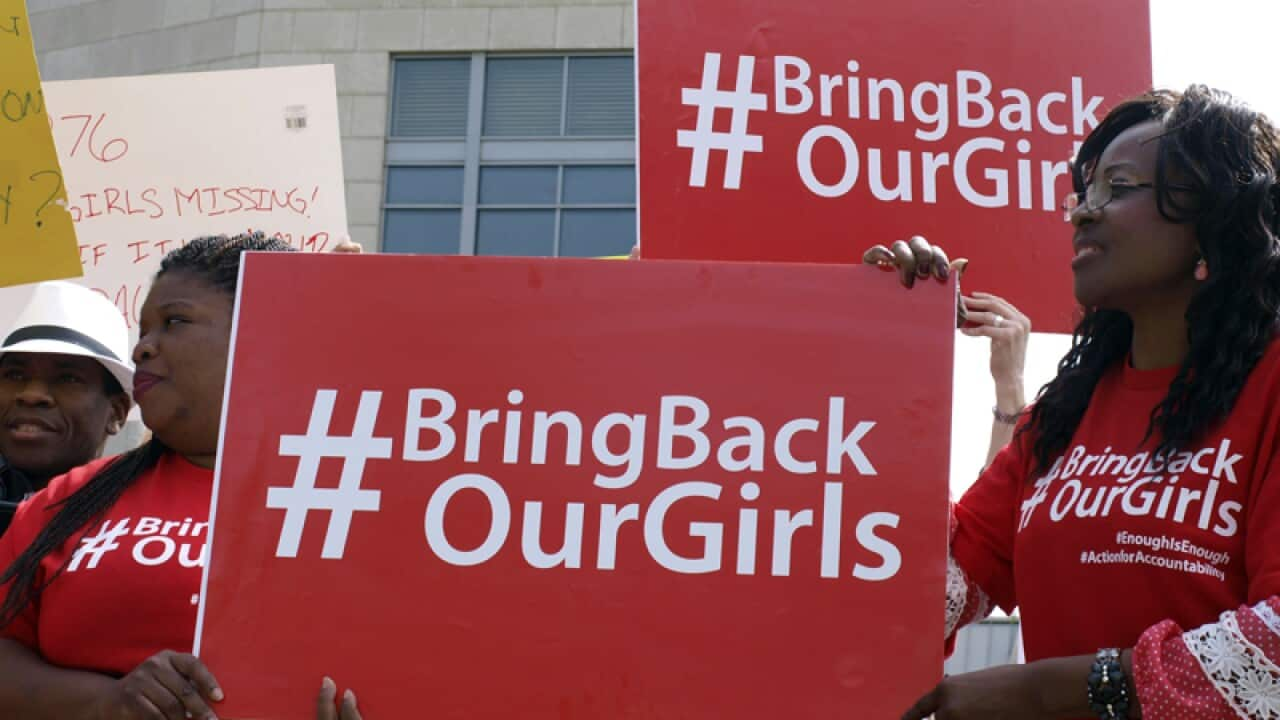The United States has sent military experts to Nigeria to help rescue hundreds of schoolgirls kidnapped by Boko Haram Islamists three weeks ago, amid growing global pressure over their fate.
US President Barack Obama made the announcement as it emerged that 11 more girls had been kidnapped late on Sunday - three more than originally thought - in the country's restive northeast.
Obama said the original abduction of more than 220 girls aged between 16 and 18 was "heartbreaking" and "outrageous," and urged global action against the extremists whose five-year uprising has killed thousands.
The first group of girls were taken from their school in the Chibok area of northeastern Borno state on April 14.
Concerns have been mounting about their fate after Boko Haram chief Abubakar Shekau claimed responsibility, saying his group was holding the schoolgirls as "slaves" and threatening to "sell them in the market".
Speaking to US broadcaster ABC on Tuesday, Obama said: "It's a heartbreaking situation, outrageous situation."
"This may be the event that helps to mobilise the entire international community to finally do something against this horrendous organisation that's perpetrated such a terrible crime," he added.
A second kidnapping targeted the Gwoza area of Borno on Sunday, when gunmen stormed the village of Warabe and went door-to-door looking for girls.
They seized eight girls aged between 12 and 15 from Warabe before moving to the nearby village of Wala, where they abducted three more, local government official Hamba Tada told AFP Wednesday.
Details of the attack took two days to emerge from the remote, deeply impoverished area, where the mobile phone network often does not function.
The team sent to Nigeria consists of "military, law enforcement, and other agencies", Obama said, and will work to "identify where in fact these girls might be and provide them help".
He denounced Boko Haram as "one of the worst regional or local terrorist organisations".
US officials have voiced fears that the girls have already been smuggled into neighbouring countries, such as Chad and Cameroon.
Their fate has sparked global outrage, with the UN warning any attempt to sell them may constitute a crime against humanity.
Britain's Foreign Secretary William Hague this week condemned the kidnapping as "disgusting", and said London was offering "practical help", while French President Francois Hollande said his government would do all it could to assist the Nigerian authorities.
Some analysts said Nigerian President Goodluck Jonathan's acceptance of US military assistance showed he had realised his administration cannot manage the Boko Haram uprising without help.
As well as mounting pressure over the kidnappings, Nigeria has been hit by a spate of bombings.
Just a few hours before the mass abduction, a blast ripped through a crowded bus station on the outskirts of Abuja, killing 75 people in the deadliest attack to hit the capital.
Another bombing at the same station killed 19 people on May 1.
Boko Haram, which says it wants to create a strict Islamic state in Nigeria's mainly Muslim north, also claimed responsibility for the April 14 blast in Abuja.
To contain the violence, Jonathan has imposed a state of emergency in Boko Haram's northeast stronghold where he sent thousands of troops to flush out the insurgents, but critics say the offensive has achieved almost nothing.
Share

